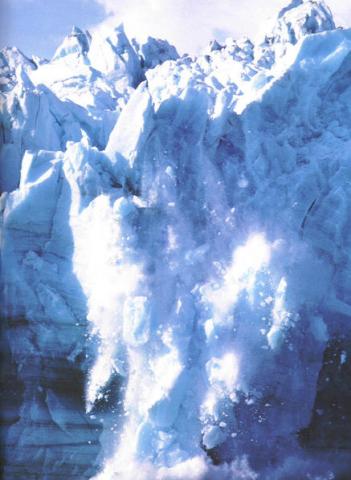The climate denial industry is once again trying to make a huge to-do about a tiny error by the Intergovernmental Panel on Climate Change.
With the Climategate Swifthack episode fading from the limelight, after a thorough debunking of far-fetched accusations that scientists made up global warming, the climate science attack machine now wants the world to focus on one paragraph out of a 938-page, three-year-old report.
The contrarians are questioning a single reference to Himalayan glaciers included in a 2007 IPCC report that does not meet the IPCC’s well-established evidentiary standards.
Here is their alleged smoking gun: The second of three 2007 reports from the IPCC included a statement that the likelihood of Himalayan glaciers disappearing “by the year 2035 and perhaps sooner is very high.”
But the reference to Himalayan glaciers melting at that early date didn’t originate from a peer-reviewed study, meaning it should not have appeared in the IPCC report.
Sure, that’s slightly embarrassing. But it isn’t grounds to declare the entire library of climate science a fraud. The IPCC’s findings have been validated and substantiated by assessments conducted by leading scientific institutions the world over.
The real news here is that a single ‘error’ was discovered in just one of the IPCC’s reports, collectively reams of paper thick, and the ‘error’ isn’t an error at all. The Himalayan glaciers are melting. There is no debate about that in the scientific community.
The fact is that, since glaciers are complex systems, scientists can’t tell exactly how fast they will disappear. That they are melting, and that sea levels are rising, is irrefutable.
But that won’t stop the contrarians from attempting to inflate the importance of a tiny mistake to further their ongoing efforts to smear climate scientists. Right-wing blogs say this tiny error proves the IPCC’s lack of credibility. Never mind the validity of thousands of scientific studies published over decades by scientists around the world. The attack machine says this proves the entire process of international scientific assessment of climate change is flawed. Really?
Here are the facts: Melting glaciers are a leading contributor to rising sea levels. An accurate understanding of the relationship between global warming and glaciers is critical since melting threatens to exacerbate water shortages around the globe.
The Chinese Academy of Sciences understands this, and has monitored the melting of glaciers in the Tibetan Plateau closely since they are a critical source of freshwater for millions of people.
Their extensive efforts to study hundreds of Tibetan glaciers between 1990-2005 shows that “95% of the glaciers have been retreating, and those numbers are very consistent with what we’ve seen in other mountain ranges around the world,” according to glaciologist Lonnie Thompson.
Thompson, who has conducted 56 expeditions in 16 different countries to study the extensive climate history recorded in glacial ice, explained to reporters on a conference call organized by the Union of Concerned Scientists today that 95-100% of the world’s glaciers are retreating, from the northern Arctic, throughout the tropics, all the way to Antarctica.
Despite the deniers’ attempts to attack scientists, the evidence of glacial melting stands.
“Glaciers do not have any political agenda,” Thompson says.
A lot of new scientific information has come out since the IPCC review of science for the 2007 report in question. We now know that, in the case of many of these glaciers, surface melting is allowing water to reach the base of glaciers, causing them to melt more quickly.
“That will cause sea levels to rise much faster than we had projected,” Thompson confirms. “Glaciers are very dynamic, and they are responding very rapidly.”
Indeed, the sea level rise predictions in the IPCC’s Fourth Assessment are in fact much too conservative. More recent studies predict that sea levels will rise much more quickly, and higher, than IPCC has predicted. 3-D ice sheet modeling efforts are underway at the Hadley Center, Los Alamos National Lab and elsewhere, and the early indications are far from reassuring.
“Scientists are very conservative people, and they will tend to understate, rather than overstate, their findings,” Thompson notes. “IPCC tends to take a much more conservative view than you might otherwise find” in a review of more recent climate science, he says.
Don’t expect to hear that from the climate denial industry, though.
Subscribe to our newsletter
Stay up to date with DeSmog news and alerts






